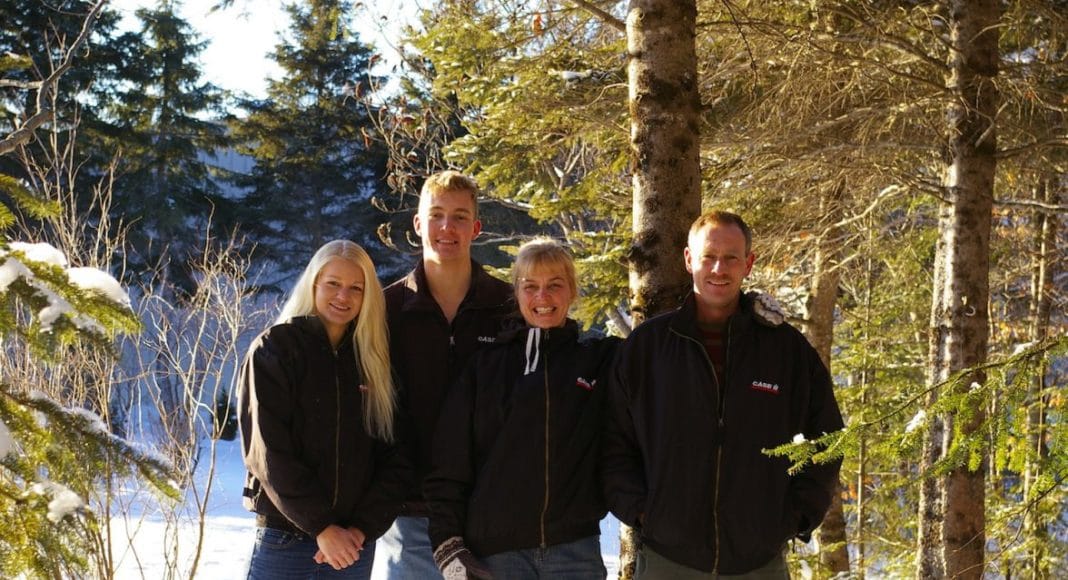In 1989, Kornelis Bakker was in his second year of university in the Netherlands when his best friend made a surprising announcement: “We’re going to Canada next summer,” he told Bakker.
A seed growers’ delegation from New Brunswick had been in the area visiting a few seed farms, including his friend’s. That night at supper, his friend told his parents he’d decided to do an internship in New Brunswick. “No, you’re not,” said his father, before relenting. “Well, you shouldn’t go by yourself.”
So Bakker was enlisted. “In the summer of 1990 we landed in New Brunswick. My friend had a place and the director of Potatoes New Brunswick found a place for me, and we stayed until October, just before harvest was done,” says Bakker.
That summer he met his future wife, Ciska, whose family had emigrated from the Netherlands to Canada in 1980, and his fate was sealed. For a year or two, Kornelis and Ciska travelled back and forth between the two countries, but in the summer of 1992, the spring he graduated, the couple married.
“They call your name [at graduation] and you’re supposed to go up the stairs and get your letter and diploma,” he says. “But I wasn’t there. I was here in Canada getting married.”
The couple moved back to the Netherlands and farmed there for several years, but in 2000 they immigrated to Canada – this time with two children in tow.
“We’ve been here ever since,” says Bakker.
Challenges and Opportunities
The Bakkers’ farm is located in Killoween, New Brunswick, only 25 kilometres from the McCain plant in Florenceville-Bristol.
The family farmed 300 acres, 150 to 160 of them devoted to processing potatoes for McCain. Four years ago, Bakker had the opportunity to buy more land in the area and grew the operation to 500 acres of potatoes. Now, the family exclusively grows Russet Burbank potatoes on contract with McCain.
It was a major change and a “big step” for the family, but Bakker had help — his son Harris, 23, who started farming full time last year after graduating from Dalhousie University’s agricultural college.
“Some guys go to school and they don’t know what to do,” says Bakker. “I knew I wanted to be a farmer as far back as I can remember, and our son was the same. It was never an issue of what he wanted to do, and if, when or how. He’s farming and that’s all he wants to do.”
Bakker’s entire family gets involved in day-to-day operations. His daughter Berdien, 21, is in her second year of veterinarian school in Charlottetown, but whenever she’s home, “the first thing she does is put on a pair of coveralls and boots and gets to work,” he says.
Ciska looks after the farm’s business operations, and at seed-cutting time and harvest, she manages the storage crew. And even though her occupation is off-farm, Harris’s fiancé, Samantha, helps manage the food safety aspect for the farm.
More Freedom
Bakker says farming in the Netherlands is very different from farming in Canada, particularly when he started in 2000. At that time, land prices were a lot cheaper in Canada than the Netherlands, and there was less paperwork — there were far fewer food safety regulations, for example. “There was a lot more freedom in farming here,” he says.
These days, the business of farming is at least as technical in Canada as it is in Europe. But Bakker has a laid-back philosophy about the changes: “It’s part of life, it’s part of progress,” he says.
A bigger challenge was due to the farm’s rapid growth a few years ago. All farms in the area still hire locally, and it can be difficult to find seasonal help, Bakker says. The farm is still too small to hire full time help.
But Bakker is optimistic about the farm’s prospects, particularly due to the support of his family.
“Having the family involved and everybody happy, and being able to make a living and pay the bills on time, that makes me proud,” he says. “It will probably never make us rich, but it’s enough.
“What makes me proud too is coming up the driveway and looking around and saying, ‘This is ours, our own spot.’ I think it’s a beautiful place where we are.”











